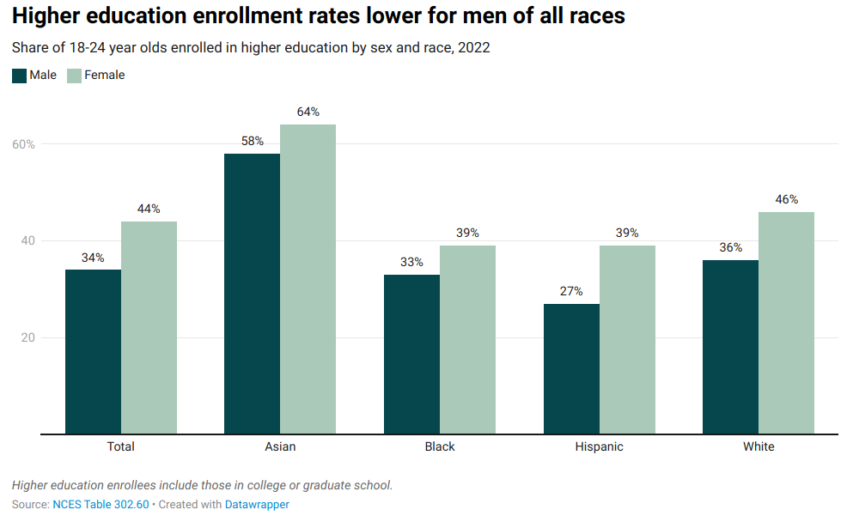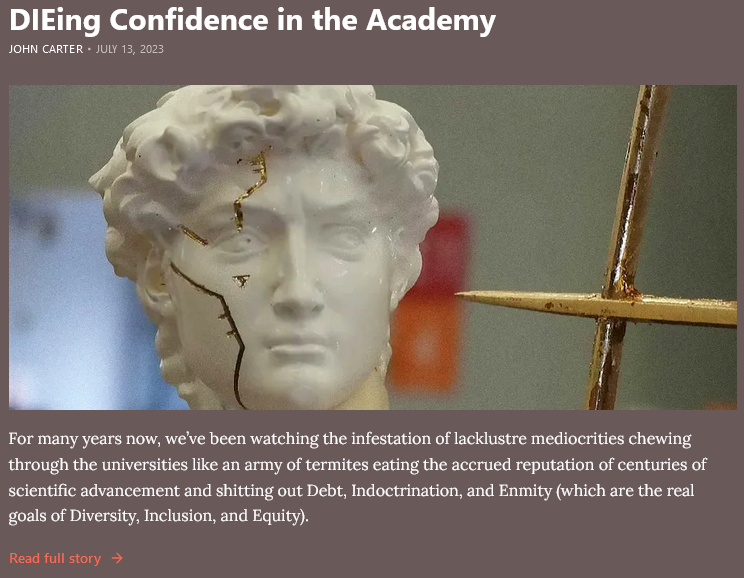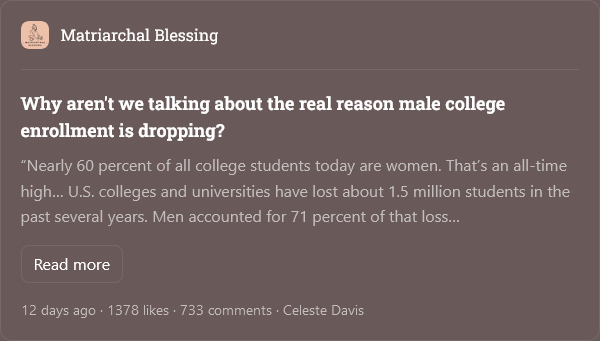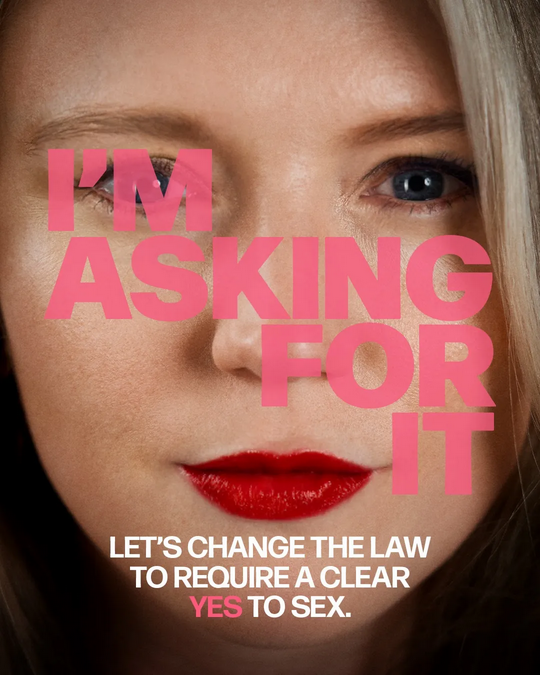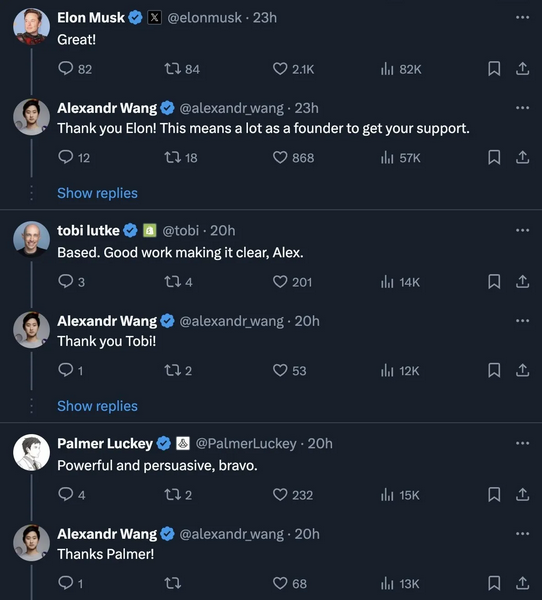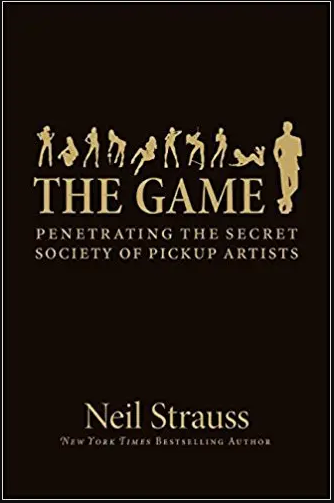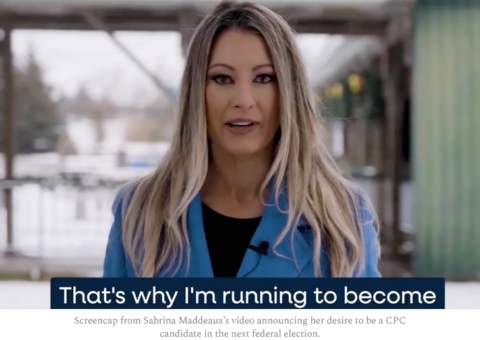The idea of the suffragettes was that women should share in the political business of the menfolk voting on leaders whose main task was deciding matters of crime, taxation, and war, on the grounds that they share in the outcomes and burdens of any bad decisions in that area.
Note that governments, back in the day, did not attempt to act as a nanny, warding off daily harms from unsafe commercial products, or was government in the business of educating the young, nursing the sick, or managing the personal lives of all the children of all ages inhabiting the nation.
The idea of the men who invented feminism was that propelling women into the workforce would increase the tax base, break apart the nuclear family, and increase sales of expensive drugs to promote temporary sterility.
Breaking the family in turn would make women more dependent on the government than on their menfolk, and draw the unreasoning admiration women typically bestow upon their protectors and breadwinners onto the Powers That Be. The fanatical devotion that mothers of convicts show, when they insist forever that their child is innocent, would then be channeled into the ballot box toward whatever demagogue with a vacant smile promised to remove dangerous liberty from the hands of the children, regardless of age, inhabiting the nation.
Pornographers like Hugh Hefner encouraged feminism on the grounds that it would increase vice, and hence the monetary gain from the public sale of vice.
Then, once women were in the workforce, excluding them from the military and other areas where men are better qualified was said to be a sign of hidden bigotry against them. The idea of this bigotry was so stupid that a new word had to be coined to hide its meaning, and that word is “sexism”.
The word “racism” — which at the time had a meaning — was decapitated and the word “sex” — and at the time this word also had a meaning — was sutured onto the neckstump, to produce a new word intended to denounce a nonexistent hatred and contempt felt by men against women.
There have been wars between races and tribes since time immemorial, and hatred between races and tribes. But the war between the sexes is not really a war, because both sides keep flirting with the other, and settling down, and having babies and suchlike.
John C. Wright, “No More Lads”, John C. Wright’s Journal, 2020-01-28.
February 28, 2025
QotD: A jaundiced view of the feminist movement
February 25, 2025
QotD: Identity politics as a secular religion
Tom Holland, in his book Dominion, The making of the Western Mind, identifies the “trace elements” of Christianity in the woke world. The example he used was the intersectional feminists in the #MeToo movement offering white feminists the chance to “acknowledge their own entitlement, to confess their sins and to be granted absolution”.
But the problem with identity politics as a secular religion is precisely its failure to allow for absolution. The faith that Saad espouses is utterly bleak, even cloaked as it is in words of love. It utterly fails to allow for redemption, and its most direct religious antecedent is found in Calvinist predestination.
Under this doctrine, God has predetermined whether you are damned or elect. From the second that the right sperm hit it lucky with the most fecund egg, your place in the woke hierarchy was decided. In the modern progressive world, informed by intersectional feminists, it does not matter what you say or do, the only defining factor in your state of grace is your skin, gender and sexuality.
This is a profoundly depressing outlook for three main reasons. The first is the essential nihilism in the creed. Your intent? Irrelevant. Your deeds? Likewise. The sum of your experience, desires, longings, beliefs? Your humanity itself? Nah, not relevant.
The second dispiriting message is that the problems its aims to address are insoluble. White people are racist by their nature, and inherently incapable of seeing their own racism or addressing it. Men are misogynists, by default, witting or unwitting bulwarks of the patriarchy. If they don’t believe they are individually at fault they are in denial. And if they try to say, actually, I’m not sure the patriarchy exists, they are mansplaining misogynist bastards. This is the politics of perpetual antagonism, of a kind of bleak acceptance that all relationships between different categories of human are necessarily fractious.
[…]
The third problem with Puritan wokeness is that it [has] sinister echoes in the history of predestination. When the creed reached its zenith in the seventeenth century, the logical hole at its centre became insanely obvious. If it does not matter to God how you behave, because your salvation was pre-determined at birth, why not behave however the hell you want to?
Antonia Senior, “Identity politics is Christianity without the redemption”, UnHerd, 2020-01-20.
February 11, 2025
Many young white men are choosing to “own the insult” when accused of being a fascist
Lorenzo Warby points out that some — even many — young white men are reacting to repeatedly being called “Nazi” or “fascist” by embracing the slur:
For the fuel of the contemporary networked authoritarians are angry young men. Angry young men who have a great deal to be angry about.
In so many modern schools, universities, and much of social media, if you are a low melanin count, heterosexual male you are absolutely at the bottom of the “woke” oppression-bingo hierarchy. You will be implicitly, or explicitly, held to be somehow tarred with every bad thing any person “like” you has done in history, no matter how long — even how many generations — before you were born that it happened, nor how dubious an historical characterisation it might be. There is no identity open to you that you can celebrate, or feel positively attached to, without potential or actual denigration.
If you do any reading, you can quickly work out that this is a ludicrously one-sided — and deeply unfair — way to look at history. Even in its own terms, it is nonsense, as “folk like you” — i.e., low melanin count heterosexual males — voted for every single legal advance any of the celebrated-as-oppressed groups made. “Folk like you” built the Scientific Revolution, Parliamentary Government, mass prosperity.
Of course, this was a matter of culture, institutions, the happenstance of history, not melanin content. The trouble with the racialisation of history and identity is that it is, indeed, the racialisation of history and identity. As Jews are currently (re)discovering.
Nor can many of these angry young men take much refuge in the good life, work or entertainment. Online dating has turned into a hypergamous nightmare that excludes most guys, in-person connections are fraying and migration-plus-restrictive-land-regulation has shot rents up and made home-owning unattainable.
In entertainment, masculine heroes are being replaced and degraded. Online games are being systematically “wokified”. There are systematic attacks on their heritage. Sport and advertising is also being wokified, is “bending the knee”. Where to go?
If folk systematically tar or denigrate someone’s identity, a natural response is to say “no, my identity is great, it is wonderful”. There will be certainly a market for such a response. The natural response to systematic denigration is some form of “fuck you!” and the politics of “fuck you!“.
In the contemporary world, what is the most dramatic way of saying “fuck you!“? To take the racist!, fascist! abuse and go “right on!“. Even more so if you take the ideas they invoke and turn them back against them.
Of course, if you just reverse what left-progressivism — in its “woke” iteration — stands for, you are still dancing to their tune. But rage can easily work like that.
So, these angry young men look at the folk who treat them with such continual, institutionalised, contempt — who stack everything they can against them — and decide “we hate you”. If you are going to abuse us anyway no matter what we do — the seductive logic goes — then why not simply embrace the identity you impose on us if we put our heads up? There is, after all, no more in-your-face way to shriek their anger and rejection back at those who are abusing, denigrating and excluding them than to embrace racism and fascism.
They look at ordinary conservatives, at ordinary liberals, they look at Boomers, and think “you did not stop it, you did nothing to protect people like me”, so they — and their politics — get no respect.
Instead, they go to the politics of using the operational tactics used against them — the operational politics of “wokery” — in support of politics that most completely expresses their rage. This is the updated version of what happened with 1920s Fascism in Italy and 1930s Nazism in Germany. Like the original versions, they are using — and so helping to legitimate — the operational methods of the left-progressivism.
Not that left-progressives, the “woke”, will see it. They are way too full of the stupidity of arrogance, of the blindness of moral narcissism, to pick what is happening, still less take any responsibility for it. They utterly fail to see themselves; to understand how much they come across as smug, arrogant, condescending, self-righteous, shits whose politics again and again ends up favouring people like them and whose recurrent response to disagreement is to de-legitimise, denounce and censor. Their entire view of themselves is they are the oh-so-clever, oh-so-moral people. Nothing they do is ever seriously counter-productive or fundamentally mistaken.
Faced with the rise of actual racism and actual fascism, they will shriek racist! and fascist! even harder. But they are in the situation of the boy who cried wolf! Except worse, as the boy in the story neither created, nor trained, the wolf.
They have so debased that currency, so debased historical analogy, that fascism has lost its rhetorical, or even its warning, power.
Besides, how many people will say: these folk against whom you are shrieking the same terms of abuse you have shrieked at people for decades. Are they making excuses for the mass sexual predation on young girls by migrants we did not want? Are they supporting the hormonal and surgical mutilation and sterilisation of minors? Are they teaching folk to despise their own countries and heritage? Are they pushing the narrative lies of the moment? Have they proved to be incompetent at elementary things, such as fighting crime and managing fire risk?
No? Then they sound good to me.
Left-progressives: so good at finding new ways to make the same mistakes. It is almost as if they have a pathological relationship with information. Oh, wait, they do.
January 16, 2025
The allegations against author Neil Gaiman
I haven’t read the article in question, but it certainly looks ugly if even a few of the allegations turn out to be true:
New York magazine has just published a very long investigative piece on alleged sexual misconduct by the author Neil Gaiman, both contextualizing previously-known allegations and introducing new ones. Writer Lila Shapiro, who clearly did an awful lot of legwork, found several new women who allege various forms of bad sexual behavior against Gaiman. It’s all very serious and disturbing, obviously. I have nothing to contribute and no one cares what I think about such things, so we can leave that story there.
But I’m afraid that Shapiro’s piece does again force me to think about New York‘s story last year about Andrew Huberman. You could be forgiven for thinking “New York‘s SIMILAR story last year about Andrew Huberman,” but this would not be a correct characterization; where Gaiman is accused of many acts that, if true, rise to the level of sexual misconduct, including rape, the Huberman piece contains no such allegations. Huberman is accused of dating multiple women at the same time without the knowledge of all involved, of infidelity generally, and there’s a bizarre fixation on his regular tardiness. It is not a MeTooing piece. And the trouble, I’m afraid, is that the piece was written, edited, packaged, and promoted in a way that inevitably gave audiences the impression that such allegations were included — that Andrew Huberman had been MeToo’d.
The fact that the piece contains no allegations of that type, but seems to have been very deliberately associated by New York, its author Kerry Howley, the magazine’s social media channels, and their many media kaffeeklatsch allies with MeToo stories, was a terrible error in editorial judgment. The Gaiman story helps underline why: this shit is so serious that we can’t afford to play around with these types of narratives. The Rolling Stone University of Virginia gang rape fraternity initiation story, a narrative that fell apart under the barest scrutiny and should never have survived even an amateur journalistic investigation, did a lot of damage in our ongoing efforts to take sexual assault on campus seriously. There’s a higher bar to clear with this stuff for that reason, and the Huberman story utterly failed to clear it.
The story’s presentation in the magazine was draped with innuendo, with as many leading terms and dark implications as can be stuffed in. The image on the cover is styled and colored to make him look sinister. People associated with New York tweeted about the piece as if it was a nuclear bomb, using the kind of language that we’ve grown accustomed to when a MeToo story is published and kills a career. I would argue that the story is deliberately written in the slow-burn reveal style that is typically deployed in MeToo stories — that’s deployed, in fact, in the Gaiman story. (There it makes sense, because the slow burn leads to actual accusations.) At every opportunity, the story exaggerates the implication of a man who, yes, was a shithead to some women he dated. The article is forever presenting quotidian-if-unfortunate behaviors and acting as though we should interpret those behaviors as worthy of the kind of censure that has been brought to bear by men guilty of sexual misconduct in the MeToo era. “I experienced his rage,” says one of Huberman’s exes, suggesting some sort of domestic violence situation, when in fact that’s a reference to a verbal argument — again, maybe unfortunate, but simply not in the world of misconduct.
The magazine’s internal references to the piece, and their social media, played up the usual teasing manner of such publicity, broadly hinting at bad behavior in the realm of sex and romance. The repeated phrase used was “manipulative behavior, deceit, and numerous affairs”. I don’t need to tell you that many people, trained by six-plus years of reading about sexual misconduct, are going to assume that a vast cover story in one of the country’s biggest magazines about a man’s bad behavior and deceit towards his partners is going to be a MeToo story. As many would go on to say, the fanfare and length and publicity about the piece themselves implied that it was a MeTooing. After all, what else would justify that level of attention?
October 25, 2024
Diversity at all costs
In the National Post, Harry Rakowski explains why Toronto Generic University — sorry, I mean “Toronto Metropolitan University” — is reserving 75% of available enrolment in their new medical school for more diverse candidates, even if they wouldn’t normally qualify by their grades:
We have a critical shortage of doctors and nurses in Canada. Almost a quarter of our population can’t find a family doctor. Wait times for seeing a specialist, getting medical imaging and surgical dates continue to climb, with only Band-Aid solutions being proposed by the federal and provincial governments. We desperately need to expand medical schools and the licensing of highly qualified foreign medical graduates.
So it was welcome news to hear that 94 undergraduate medical students and 105 postgraduate students (residents) will be entering the newly established Toronto Metropolitan University School of Medicine when it opens in September 2025. The city of Brampton, Ont. donated a former civic centre along with $20 million in funding for renovations in order to make the school happen.
However, it was highly disturbing to learn that admissions to the new facility will be driven by a culture-war philosophy that will dilute the quality of medical practice.
There’s no doubt that diversity in medicine helps to optimize care and provide better outcomes for the differing needs of Canada’s highly diverse population, which includes many individuals disadvantaged by their geography as well as racial and economic inequality. But TMU is going about it the wrong way. Its admissions policy will focus on DEI (diversity, equity and inclusion) rather than quality.
TMU’s plan is to reserve 75 per cent of its enrolment slots for “equity-deserving” students — Black and Indigenous applicants and others who meet “equity-deserving” criteria including students who identify as members of the 2SLGBTQ+ community, those who are “racialized” and individuals “with lived experiences of poverty or low socio-economic status.” It will accept a minimum grade point average (GPA) of 3.3 (B+) — or even less for select Black and Indigenous applicants — and then use GPA only as an application criterion, not as a selection criterion. By comparison, the University of Toronto’s Temerty Faculty of Medicine requires a minimum GPA average of 3.6 for undergraduate applicants (although average acceptance is now 3.95).
QotD: The treason of the music critics
This is what I was saying above: everything in music criticism and music culture has changed, except music poptimist perceptions of music criticism and music culture. That is what refuses to mutate. And I think it’s ugly and toxic and has left us in this bizarre place where people who write about music for large audiences think their sacred duty is to affirm the legitimacy of what the audience already likes, instead of championing something entirely new and totally different. But then, that’s what happens when you tell a lot of mostly white and mostly male taste makers that a particular set of tastes is inherently sexist and racist — they sprint in the opposite direction as fast as they can. Because aging white men are almost as afraid of being called racist and sexist as they are of being old.
Freddie deBoer, “A Few Indisputable Points About Poptimism and Then I Give Up”, Freddie deBoer, 2024-07-22.
October 19, 2024
Changing gender balance in occupations and in higher education
At Postcards from Barsoom, John Carter ruminates on the likely downward path of many institutes of higher learning as current gender balance changes continue:
An occupation that flips from male to female dominance invariably suffers not only diminished prestige, but also a decline in wages … which, once again, makes sense in the context of sexual psychology. A man’s income is one element (and a big element) of a woman’s attraction to him, but the reverse is not true; if women are paid less, this does not really hurt their value in the sexual marketplace at all, and so they will push back against it much less than men would. This is probably what lies behind the tendency of women to be less forceful when negotiating salaries.
To the point: ever since the 1970s, women have overtaken and gradually eclipsed men within higher education. There is a gap in enrolment, consistent across racial groups:
[…]
Across all programs, at all academic levels, American universities recently reached the threshold of 60% of the student body being female.
This will be a disaster for academia.
Indeed, it’s already a disaster. About a year ago, I analyzed a Gallup poll which revealed that the confidence of the American public in the trustworthiness and overall value of the academic sector had declined precipitously over the course of the 2010s.
In that article I examined several factors contributing to this DIEing confidence in the academy: the explosive growth in tuition fees, even as continuous relaxation of academic standards dilutes the actual value of a degree; the deplorable state of scholarship, with endless revelations of fraud, a seemingly irresolvable replication crisis, and the torrent of psychotic nonsense that passes for ‘research’; the increasingly frigid social environment enforced by the armies of overpaid, sour-faced administrators. Almost all of these, however, are related in some way or another to the feminization of academia.
And it is probably going to get much worse before it gets better.
As discussed in this recent article by Celeste Davis of Matriarchal Blessing, research on male flight indicates that a 60% female composition represents the tipping point beyond which men perceive an environment as feminine, which then leads to a precipitous decline in male participation. Davis appears to be some sort of feminist3, but I want you to look past that and give her article a read; it is very thorough, well-researched, and thought-provoking (and also the direct inspiration for this article).
[…]
Universities are belatedly starting to notice that male enrolment is dropping fast, particularly among white men (I wonder why…), and are starting to make noises about maybe thinking about perhaps looking into ways of trying to recruit and retain more men (albeit, not specifically white men).
This seems unlikely to succeed.
Even if universities are successful in setting up programs to increase male recruitment, they will be fighting an uphill battle against the sexual perception that has already set in. Once something is coded as being a feminine hobby, it is extremely difficult to change that code. While it’s very easy to list examples of professions that have switched from male to female dominance, off the top of my head I have a hard time coming up with examples of the reverse. This suggests that female dominance tends to be sticky. There’s no reason to expect this will be any different with academia, either within individual programs, or across the sector as a whole.
This is an entirely different problem from the one faced by female entryism. In the initial phases of female entry, the primary difficulty faced by women is that it is simply more difficult to compete with men – in the case of athletics, effectively impossible. Women must therefore either work extremely hard, or the work must be made easier for them. In practice, since the 1970s we’ve seen both of these, with “working twice as hard as the boys” predominating in the early years, and assistance from special programs predominating later on.
By contrast, the central obstacle faced by anyone trying to attract men to a female-dominated environment is that men are deeply reluctant to enter. As a third of young men told Pew when asked why they didn’t attend or complete university: they just didn’t want to. It isn’t because they can’t compete with women. They can, usually with ease, but competition is pointless because it will gain them nothing. Special programs to assist men are beside the point; if anything, they work against you, because the implicit message with any special program for men is that they need help to compete with women … thereby making competition even more pointless. “You beat a girl but you needed help to do it”, is going to impress the girls even less than beating a girl unaided.
September 18, 2024
Sexual objectification … is it okay when you do it to yourself?
On her Substack, Janice Fiamengo talks about the “Curious Case of the Self-Objectifying Feminist”:
Not long ago, a British campaign for affirmative consent legislation featured images of women paired with the slogan “I’m asking for it“. The whole point, of course, is that they’re not asking for “it”. The phrase is meant to evoke men who justify their sexual assaults of women by claiming that the victim wanted to be raped. What the women are asking for is legislation to make it a criminal offence for a man to have a sexual encounter with a woman without eliciting an explicit “Yes” from her at every stage (how far we have moved from the relatively simple “No means no”).
The most striking of the ads features the face of Charlotte Proudman, the well-known feminist barrister and zealous anti-male advocate who once denounced a fellow lawyer for complimenting her LinkedIn photo. In the picture, Proudman confronts the viewer with a sexy, smoldering look and a slight half-smile. Her face is carefully made up to accentuate her feminine sexuality, with dark-tinted eyelashes and gleaming red lips outlined in vivid lip gloss. In order to object to men’s sexualization of women, Proudman has sexualized herself.
We are told that the campaign was “deliberately bold and intentionally provocative”. It was designed to “stop viewers in their tracks“, so that we would think about how women are mistreated under the law. Male viewers whose minds stray to sex are, one can only assume, to be brought up short, ashamed and convicted of sin.
The double messaging is deliberate — but confusing. Most people looking at Charlotte Proudman’s sex-kitten face will not, in my opinion, contemplate misogynistic attitudes or the scourge of sexual violence. On the contrary, most viewers will be “stopped in their tracks” by the overtness of Proudman’s sensual self-display. It seems odd that an ad claiming that women should not be seen to invite sexual advances features a woman who seems to be inviting sexual advances.
Feminists have for decades claimed that such sexualization has been forced on women to their detriment. In the fashion industry, in movies, and in daily life, according to feminist philosophers like Sandra Lee Bartky, men compel women to advertise their sexuality as their primary power, to redden their lips, assume sexual poses and flatter the voracious male gaze, becoming “object and prey for the man“.
For centuries, we’re told, patriarchal societies denied women the opportunity to do anything with their lives but live out male sexual fantasies, whether as virgin or whore, Madonna or muse. A male-defined culture made the woman accentuate her youth, shave her legs, remain svelte, and present herself for visual consumption, “living her body as seen by another, an anonymous patriarchal Other“: a degrading spectacle from which all women would be better off free.
Yet here is a campaign designed by feminists to support alleged rape victims, with the same (objectionable) self-presentation by the ad’s primary subject, who is obviously not posing against her will and obviously has many choices about how to present herself. The only difference, it seems, is that in this case, the woman’s self-display is entirely of her own defiant volition.
One wouldn’t think that would be sufficient for a diehard feminist like Proudman, or for any equality-minded modern woman with a thousand choices about what to do with her life.
When I was a little girl in the early 1970s, I took it for granted that self-respecting women wanted to be appreciated for the qualities of their minds and characters. One of the first slogans I remember was the somewhat puzzling “Love me for my mind, not my body”. At the time, around six or seven years old, I thought it would be nice to be loved for any reason. Only later did I understand the implication: to be loved for one’s body was not truly to be loved at all, for the body was a superficial, mutable aspect of the self, destined to deteriorate with time. Moreover, according to the general feminist perspective, the body was all that sexist men cared about, especially the sexual parts. This was objectification, the reduction of the whole woman with all she had to offer (her kindness, her wit, her unique thoughts) to a thing. It was shameful and degrading.
June 20, 2024
“Surely the only way to defeat racism and homophobia is to treat ethnic and sexual minorities as incapable of high achievement and in need of a leg up from their betters?”
Andrew Doyle on a radical new approach to hiring that might just catch on:
With the inexorable spread of DEI – Diversity, Equity and Inclusion – across the western world, it’s refreshing to see at least one major company resist the decrees of this new religion. This is precisely what happened this week when Scale, an Artificial Intelligence company based in San Francisco, launched a new policy to ensure that its employees were hired on the basis of – wait for it – being the most talented and best qualified for the job.
This innovation, which sees race, gender and sexuality as irrelevant when it comes to hiring practices, should hardly be considered revolutionary. And yet in a world in which the content of one’s character is less important than the colour of one’s skin, to treat everyone equally irrespective of these immutable characteristics is suddenly deemed radical.
Scale’s CEO, Alexandr Wang, explained that rather than adopt DEI policies, the company would henceforth favour MEI, which stands for Merit, Excellence, and Intelligence. He explained the thinking behind the new scheme in a post on X.
There is a mistaken belief that meritocracy somehow conflicts with diversity. I strongly disagree. No group has a monopoly on excellence. A hiring process based on merit will naturally yield a variety of backgrounds, perspectives, and ideas. Achieving this requires casting a wide net for talent and then objectively selecting the best, without bias in any direction. We will not pick winners and losers based on someone being the “right” or “wrong” race, gender, and so on. It should be needless to say, and yet it needs saying: doing so would be racist and sexist, not to mention illegal. Upholding meritocracy is good for business and is the right thing to do.
One can already hear the likes of Robin DiAngelo and Alexandria Ocasio-Cortez screaming in fury at this blatant implementation of good old-fashioned liberal values. Surely the only way to defeat racism and homophobia is to treat ethnic and sexual minorities as incapable of high achievement and in need of a leg up from their betters?
It is instructive to compare reactions from the Twittersphere (now X) and Instagram, as one X user has done. If nothing else, the comparison reveals how the divide in the culture war is playing out on social media since Elon Musk’s takeover. On X, major figures in the corporate world such as Tobias Lütke (CEO of Shopify), Palmer Luckey (founder of Oculus VR) and Musk himself have congratulated Wang on his new initiative.
By contrast, here are some of the responses on Instagram:
You’re ‘disrupting’ current hard-fought standards you don’t like, by reverting to a system rooted in bias and inequality that asks less of you as a hiring manager and as a leader
– Dan Couch (He/Him)Curious to see how hiring processes can effectively (and objectively) measure one’s ‘merit’, ‘excellence’, and ‘intelligence’, all of which are very subjective terms
– Cole Gawin (He/Him)What is merit and how do we measure it?
– Rio Cruz Morales (They/Them)This sounds a lot like excuse making for casting off DEI principles
– R.C. Rondero De Mosier (He/Him)The pronouns, of course, signify membership of the cult, and so we should not be surprised to see the sentiments of its minions mirroring each other so closely. What Wang is proposing of course builds equality into the hiring system and, contrary to these complaints, it is entirely possible to measure merit objectively. This, after all, is the entire point of academic assessment. The arguments against merit can only be sustained if one presupposes that systemic inequalities are ingrained within society, that all of these relate to the concept of group identity, and that adjustments have to be made accordingly to guarantee equality of outcome.
March 18, 2024
QotD: Self-hatred (aka “false consciousness”)
The expectation that a commentator’s views must be in lockstep with his or her ethnic, religious, or sexual identity is always distasteful — particularly when blacks, women, gays, or Jews are labeled “self-hating” when they refuse to toe the perceived party line.
Cathy Young, “When Jews wax anti-Semitic”, Boston Globe, 2005-02-07.
March 8, 2024
A fresh look at the PUA “bible”
In UnHerd, Kat Rosenfield considers the original pick-up artist bible, The Game by Neil Strauss, in light of more than a decade of changes in how moderns approach relationships with the opposite sex:
A decade letter, I’m struck by the astonishing prescriptiveness of this line: the notion that any sexual encounter preceded by flirtation, negotiation, or indeed any assessment of a suitor’s desirability should be understood as “less-than-ideal” — and that any man who seeks to make himself desirable to an as-yet-uncertain woman is doing something inherently sleazy. Granted, the anti-Game backlash began in the form of reasonable scrutiny of controversial seduction techniques like “negging” (a slightly backhanded compliment deployed for the sake of flirtation).
But since then it has morphed into something much stranger: the idea that anything a man does to impress a woman, from basic grooming to speaking in complete sentences, should be viewed with suspicion. Behind this is the same low-trust mindset that leads women to treat every date as a hunt for the red flags that reveal her suitor as a secret monster. If he compliments you? That’s lovebombing, which means he’s an abuser. If he doesn’t compliment you, that’s withholding, which also means he’s an abuser. Other alleged “red flags” include oversharing, undersharing, paying for the date, not paying for the date, being too eager, being five minutes late, and drinking water — or worse, drinking water through a straw.
Today, the turn against pick-up artistry can be understood at least in part as a reaction against some of its more prominent contemporary practitioners, including men such as Andrew Tate, who makes Mystery look like a catch by comparison. But it is also no doubt an outgrowth of a culture in which male sexuality has effectively been characterised as inherently predatory, while female sexuality is seen as virtually non-existent. The question that seduction manuals once aimed to answer — “how do I, a shy young man, successfully and confidently approach women?” — is now, in itself, a red flag, one likely to provoke anything from squawking indignation to abject horror to bystanders wondering if they ought to call the police. That you are even thinking of approaching women just goes to show what a troglodyte you really are. What do women want? The contemporary answer appears to be: to be left alone, forever, until they die — or to meet someone in a safe and sanitised way, via dating app … although even that option is increasingly positioned as inherently dangerous.
Meanwhile, I was surprised upon revisiting The Game to realise that the strategies contained within the book are not just useful but mostly in keeping with more traditional dating and courtship advice, from “peacocking” (wearing something eye-catching or unusual that can act as a conversation starter), to passing “shit tests” (responding with humour and confidence when a woman teases you). Even the much-derided negging wasn’t originally designed with the goal of insulting or belittling women, but rather to teach men how to talk to them without fawning and drooling all over the place. In the end, the message of The Game is more or less identical to the one in popular women’s dating guides, like The Rules or He’s Just Not That Into You: that confidence is sexy, and naked desperation is a turnoff.
And while this may just be a function of one too many viewings of the BBC’s Pride & Prejudice (featuring Mr Darcy, a man in possession of £50,000 a year and an absolutely legendary negging game), I wonder if the aim of seduction guides is, paradoxically, to restore our confidence in the tension, the mystery, and the playfulness of courtship in the age of the casual hookup. Even as we rightly rejoice in the fact that society no longer stigmatises women for desiring and pursuing sex, there is surely still something to be said for subtlety — and just because we aren’t consigned to the role of the passive damsel, dropping a handkerchief on the ground in the hope that the right man will pick it up, that doesn’t mean every woman wants to be horny on main. It’s not just that announcing your desire through a megaphone can seem uncouth; it’s also a lot less exciting than the dance of lingering glances, double entendres, and simmering chemistry that characterises a mutually-desired seduction in the making. Certain people might deride this brand of sexual encounter as “less-than-ideal” for its political incorrectness, but it’s wildly popular — in novels, in films, and in the fantasies of individual women — for a reason.
Meanwhile, the contemporary dating landscape is one in which the sheer fun of dating, courtship, and, yes, falling into bed together has been largely back-burnered in favour of something at once formal and immensely self-serious. In a world of handwringing over sexual consent — in which a man just talking to a woman at a coffeeshop can trigger an emergency response protocol — the stakes of sex itself come to seem unimaginably high, a breakneck gamble where one wrong move will result in a lifetime of trauma (or, if you’re a guy, a lifetime on a list of shitty men). Add to this the proliferation of dating apps, which makes the entire romantic enterprise feel more like a job search than a playground, and the whole thing begins to seem not just fraught but inherently adversarial — a negotiation between two parties whose interests are completely at odds, who cannot trust each other, and where there’s a very real risk of terrible and irreparable harm.
January 24, 2024
QotD: Boomer hypocrisy
To our Boomer professors, of course, this was just garden variety hypocrisy, the kind they’d been living with all their lives. They saw their parents being mean to Blacks and Women, so they decided that putting Blacks and Women on pedestals was the best way to organize society (because whatever is, is wrong). But when they discovered that their parents had been right all along, they found themselves living out Churchill’s definition of a fanatic — they couldn’t change their minds and they wouldn’t change the subject, so they made a virtue out of necessity and became world-class hypocrites.
Severian, “Hoist on Their Own Petard”, Rotten Chestnuts, 2021-04-19.
January 20, 2024
September 26, 2023
“Passport Bros”
Few online people are less tuned-in to the mainsteam zeitgeist than me, so perhaps I’m once again one of the last people to be clued-in about “passport bros”. Here’s Janice Fiamengo‘s post on the “bros” and the women who apparently spend a lot of time criticizing them:
Female commentary on so-called Passport Bros is not hard to find on the internet: women are angry, contemptuous, and incredulous that men are looking for women overseas and encouraging other men to do the same — not for sex tourism (which feminists loved to criticize until they discovered that women are doing it too, in which case it is acceptable), but for a long-term relationship, including, in many cases, marriage and children. These men will partially or entirely relocate to the women’s home country in order to start a new, non-western (and non-feminist) life. The angry internet women claim not to care personally: let the losers go is their expressed attitude. Yet the sheer number and vehemence of their responses suggests they do care.
The angry commentary follows a standard pattern in which the women claim to know why a significant minority of men are giving up on western women as mates. The reason never has anything to do, of course, with faults in western women or their unrealistic expectations […]
Likewise, the reason never has anything to do with western divorce laws — in which a man can be ejected from his home, imprisoned, forced to undergo a psychiatric exam, fleeced, and deprived of his children by a grasping ex-wife — or with the fact that women are the ones who initiate divorce in upwards of 70% of cases (and are often applauded for doing so).
The reason has nothing to do with women’s openly expressed attitudes of superiority, resentment, and anti-male bigotry, which are rampant in western cultures, especially Anglophone ones. It has nothing to do with the #MeToo/Believe Women climate of baseless accusation that regularly sees men accused and disgraced purely on a woman’s say-so. It has nothing to do with the institutionalized discrimination of “equity” hiring that makes it difficult for men to find and advance in careers in order to be acceptably successful to the kind of women who now deride them for their failure.
According to the angry women online, men are leaving the west (particularly North America) to find partners because they aren’t good enough for western women. The men are allegedly “terrible, and don’t want to stop being terrible”, according to one gleefully irate commentator. Their only chance is with women so poor as to be grateful for a “terrible” man; in return, such women will have to “subject themselves to [his] advances”, according to another critic’s Victorian-style phrasing.
[…]
Many such women — protected by our pro-woman culture and deferred to by men terrified of female wrath — reach adulthood without ever having received any serious criticism. If and when they are criticized, their response is a howl of outrage and wounded self-regard. This is precisely what is happening in reaction to the Passport Bros.
Underneath the anger, there is perhaps a hint of fear. It’s not fear that men will leave the west in droves (they don’t see that happening yet, and neither do I), but it’s fear that men are not, after all, entirely under female control. Not yet, and maybe never. Some men are sick of the anti-male abuse and starting to do something about it. They are critically examining women’s characters and attitude; they’re drawing back from the acquiescence they’ve always been expected (and been willing) to give. Some are walking away and telling other men to do the same.
These women are used to dishing out the denunciation, reveling in justified grievance; they are infuriated to find that now they are the ones being judged and found wanting.
Don’t be that girl.
June 14, 2023
QotD: In hindsight, calling it “Operation HONOUR” was quite ironic
I spent my subaltern years in the light of Operation HONOUR, the signature project of then-Chief of Defence Staff General Jonathan Vance. Operation HONOUR was a massive culture change effort intended to address the findings of the Deschamps Report, which had exposed the “underlying sexualized culture in the CAF that is hostile to women and LGTBQ members, and conducive to more serious incidents of sexual harassment and assault”. General Vance went to great lengths to emphasize that Operation HONOUR was, in fact, a military operation and not a mere policy. Slicing out the tumour of sexualized culture was our mission and the General’s words were our orders. During my first ever round of quarterly performance evaluations, I reported to the company commander that one of my NCOs was non-compliant with the principles of Operation HONOUR.
Loyalty up, remember?
As a young soldier, I had actually worked for this particular NCO. He was an artifact of the Old Army and had a reputation as a hardman. He liked to brag about picking Friday night fights in Native bars out on the Prairies (he wore weighted gloves for extra knock-out power). He described to us in detail what he would do to his wife after a training weekend. He told us she would never say no, followed up with a chuckle and “like she has a choice”. If you were weak in his eyes, he’d belittle you publicly as a “queer” or a “faggot”. The funny thing was that this guy was overweight and never showed up for ruck marches or PT tests. His annual conduct-after-capture briefing was basically forty minutes of “you’re gonna get raped but that doesn’t make you gay”. One of his favourite war stories was about stray dog duty in Bosnia. He’d lure in the strays with peanut butter on the end of shotgun then blow their brains out. Riveting stuff.
Overnight I had gone from from being this man’s subordinate to being his superior, so when the General said we had a duty to report, I did my duty. The next week I was in front of the Regimental Sergeant-Major being asked why I was interfering with a strong NCO’s career prospects. That’s when I learned that loyalty up meant loyalty to the Regiment, and that sensitive matters such as this were handled internally and off the record. That one-way conversation was a major push towards putting in my application for the Regular Force. I didn’t want to be around that type of nonsense (“oh my sweet summer child” says the peanut gallery). Not long after I left, my former supervisor sexually assaulted the mess steward.
[…]
In February 2021, an investigation was opened into General Jonathan Vance, who had just finished his tenure as Chief of Defence Staff. Major Kellie Brennan, a subordinate of Vance at various times, accused him of a preventing her from disclosing their long-running affair. Since their relationship began in 2001, Vance had been married twice. DNA testing confirmed that Vance was the father of one of Brennan’s children, but he had never acknowledged or taken responsibility for the child. Vance plead guilty to obstruction of justice in March 2022 and received a conditional discharge with twelve months of probation.
The heat and light generated by an investigation of the outgoing Chief of Defence Staff led to an unprecedente level of scrutiny on the CAF’s senior leadership. In 2021 alone, the Governor General of Canada, the Minister of National Defence, the incoming Chief of Defence Staff, the Vice Chief of Defence Staff, Commander Canadian Special Operations Command, and Commander Military Personnel Command, amongst others, would resign, retire, or be re-assigned amidst allegations of impropriety. Since 2021, recruiting and retention levels have continued to free fall and the federal government has set aside $900 million in class-action lawsuit compensation for current and former CAF members who experienced sexual harassment, assualt, or discrimination. The social trap has been sprung.
“Shady Maples”, “A Question of Loyalty”, The Powder Horn, 2023-03-12.




